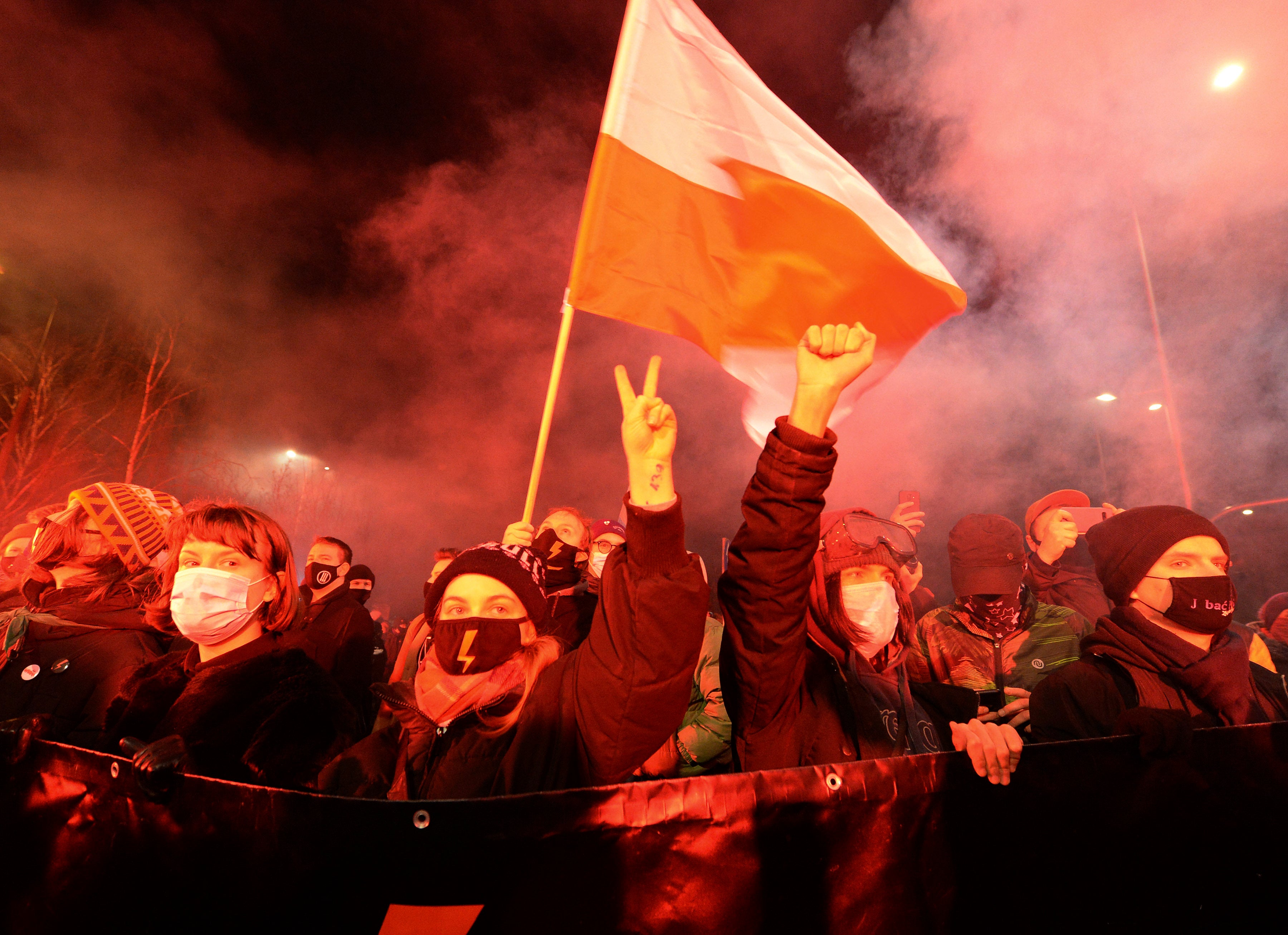‘Torture in Europe’: Polish women’s fears after near-total abortion ban comes into force
Polish women are ‘terrified’ about the new law, activists told Maya Oppenheim


After the Polish government unveiled plans for an almost total ban on abortion last October, the country was shaken by the largest protests since the collapse of communism.
And now again Poland has erupted into turmoil - with protesters descending onto the streets in over 40 cities on Wednesday - after the court’s justification for the original ruling was published before it was enshrined into law as the clock struck midnight on Thursday.
While having a pregnancy terminated in Poland is illegal except in cases of rape, incest, when a female’s life is at risk, or if there is a severe foetal abnormality, abortions, even in cases of foetal defects, are now illegal.
“It amounts to torture in the middle of Europe,” Antonina Lewandowska, an abortions rights activist based in Warsaw, tells The Independent. “This is about forcing women to give birth to a foetus that won’t survive or will be born with a severe disability for the rest of its life. It may not have several body parts - children are sometimes born without eye sockets. It is a nightmare."
Ms Lewandowska, who works for the Federation of Women and Family Planning, a Polish NGO which works with the United Nations and the European parliament, said in some cases parents will be raising a child who cannot speak or move and has no brain consciousness, as she warned the government had “sentenced women” to torture. The country’s provision for people living with disabilities is “non-existent” and many families will be left unable to financially support themselves, she added.
The activist, whose campaign group is the only registered NGO working for abortion rights in Poland, warned women with foetal defects blocked from having abortions under the new rules could die from septic shock. She said she had been awake since 2am answering calls from women who were due to have a pregnancy termination but fear they will no longer be able to.
“Women were calling through the night,” the campaigner, who was at the protests in Warsaw on Wednesday, adds. “They were mostly terrified. Several women had already made it to hospital and were awaiting a legal termination in two or three days. With the ruling, they are terrified. Some of them won’t be able to get the termination done.”
The campaigner noted travel restrictions in the wake of the Covid crisis will mean many women seeking abortions will not be able to go abroad to have the procedure. She said travelling in Poland in the pandemic is “very difficult, stressful and also dangerous” due to exposure to the virus.
“Women are needing abortions for a wanted pregnancy so their whole world falls apart because their child is often going to die,” Ms Lewandowska explains. “So they will be calling us sobbing asking us what is happening.”
She argued the ultra-conservative ruling nationalist Law and Justice (PiS) party was tightening the law on abortion in a bid to ensure they retain the support of “fundamentalist strict Christians”.
“What a cruel person you have to be to force another human being to such horror for political profit,” the activist adds. “To play with people’s lives because it profits you.”
Ms Lewandowska said people were “extremely angry” at Wednesday’s protests and she saw some demonstrators crying and others sticking their middle finger up at the tribunal building in Warsaw.
While the constitutional court’s controversial ruling was initially passed in October, the explosion of protests across the country last Autumn resulted in the government postponing the law change. Opposition politicians have also fiercely criticised the further restriction of abortion rules.
Far-right groups attacked demonstrators at the initial autumn protests, while human rights campaigners warned police applied excessive force to peaceful protesters who were “arbitrarily detained” without being allowed to have access to lawyers.
What a cruel person you have to be to force another human being to such horror for political profit
The majority of the tiny number of legal abortions which occur in the predominantly Catholic nation - which already had some of the most restrictive abortion laws in Europe - are cases of foetal defects. Campaigners say only 10 per cent of Polish hospitals will provide terminations and estimate 200,000 abortions are carried out illegally or abroad every year.
Hillary Margolis, a women's rights researcher for Human Rights Watch, told The Independent: “From the beginning, this has been a blatant effort by the ruling party to bypass parliament to push through dangerous rollbacks on women’s rights, despite an unprecedented outcry from the people.
“It’s shocking that the Polish government used a politically-influenced court to try and enact measures that leave health workers curbed by fear and women and girls facing choices that may put their lives at risk.
“Poland’s people have shown time and again that they will not sit back silently while their government continues its efforts to bulldoze rights and stifle civil society.”
She said Poland needs “more than solidarity from afar” and European leaders must “stand up” and explain that the government must not “simply flout” international law and European values without significant consequences.
PiS, which came to power five years ago on a promise to instil more traditional values, is founded on a socially conservative, Catholic ideology and has waged a war on female reproductive rights.

Join our commenting forum
Join thought-provoking conversations, follow other Independent readers and see their replies
Comments